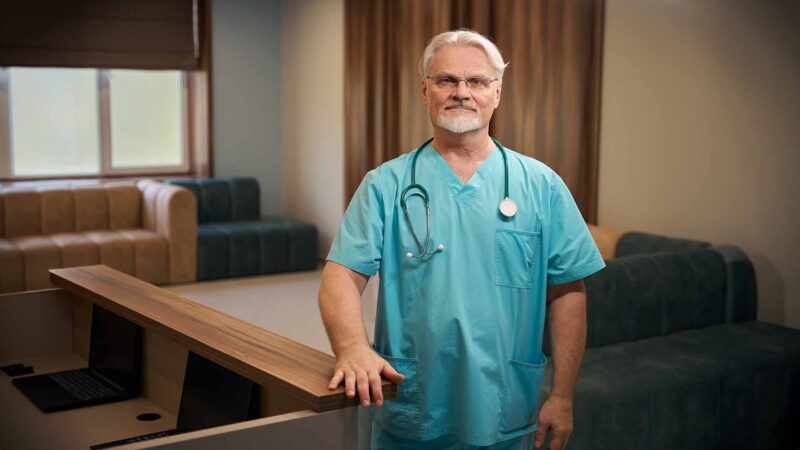IMPROVED ACCESS TO TECHNOLOGY NEEDED FOR PEOPLE WITH TYPE 2 DIABETES NEEDING INSULIN National Diabetes Services Scheme (NDSS) disparity in subsidised access to CGM systems
Australian Health Journal segment
Filmed in Canberra | March 2025
With
Susan Davidson, CEO
Australian Diabetes Educators Association
Sahar Awais,
NSW Registered Nurse
Susan Davidson is the CEO of the Australian Diabetes Educators Association (ADEA), the leading body for diabetes education in Australia. ADEA plays a crucial role in accrediting credentialed diabetes educators and providing essential training for all health professionals, as roughly 25% of individuals seeking healthcare are affected by diabetes.
In Australia, around 1.5 million people are diagnosed with diabetes, with an additional estimated 500,000 undiagnosed cases of Type 2 diabetes. Among those diagnosed, approximately 140,000 have Type 1 diabetes, while 1.3 million live with Type 2 diabetes, and about 65% of these individuals use insulin. The increasing prevalence of diabetes highlights the need for consistent education among healthcare providers to aid patients in managing their conditions effectively.
To address the evolving nature of diabetes management and technology, ADEA has recently introduced micro-credentials for healthcare professionals, enhancing their understanding of diabetes care. Consistent messaging from various healthcare providers is vital, as conflicting information can lead to patient confusion and disengagement from care.
The National Diabetes Services Scheme (NDSS) provides subsidised products for diabetes management; however, disparities exist in access to technology between those with Type 1 and Type 2 diabetes. While continuous glucose monitoring (CGM) devices are subsidised for Type 1, they are not available for Type 2 diabetes. ADEA advocates for equitable access to these essential tools, emphasising that all individuals with diabetes deserve the resources necessary for optimal management and reduced risk of complications. Without such technologies, many are forced to rely on finger pricking, which can be inconvenient and unsafe in settings such as the workplace and in higher education.
Source: Rewritten from transcript
You Might also like
-
State of private healthcare in Australia
Australia’s healthcare system is often described as a mixed system, with a combination of public and private providers. While public healthcare through Medicare provides universal coverage for essential services, private healthcare offers additional options and amenities for those who can afford them.
Private Healthcare Australia (PHA) is the Australian private health insurance industry’s peak representative body that currently has 21registered health funds throughout Australia and collectively represents 98% of people covered by private health insurance. PHA member funds today provide healthcare benefits for over 14 million Australians.
-
Medical colleges reform to address accessibility, affordability and rural challenges
Australia’s specialist medical colleges are introducing significant changes to their training selection processes to tackle the ongoing shortage of specialist doctors in rural and remote areas. The Council of Presidents of Medical Colleges (CPMC), in collaboration with the National Rural Health Commissioner, has unveiled new guidelines that prioritise candidates with rural backgrounds and experience during trainee selection.
-
Gold Coast paediatric emergency nurse leads world’s largest study in securement
Brooke Charters is a dynamic Paediatric Emergency Nurse who works at the Gold Coast University Hospital in Queensland. Brooke’s research became the world’s largest study of its kind and in May 2024 the results of the study were published in JAMA Pediatrics. Her mission is to drive change and enhance the hospital experience for children globally.



